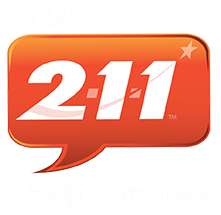
- ABOUT LOS
- DEPARTMENTS
- Administration and Finance
- Area Agency on Aging
- Active Aging Week
- Aging Advisory Council
- Aging Related Trainings
- Buncombe County Aging Plan
- Congregate Nutrition Meal Sites
- Cultural Change in Aging Network of WNC
- Dementia Friendly WNC
- Fall Prevention
- Family Caregiver Support Program
- Foster Grandparent Program
- HCCBG Services
- Health Promotion and Disease Prevention
- Living Healthy Program
- Local and Regional Planning
- Local Contact Agency (LCA)
- Operation Fan/Heat Relief
- Ombudsman Program
- Project C.A.R.E.
- Senior Centers
- Senior Community Services Employment Program (SCSEP)
- Senior Companion Program
- Senior Tar Heel Legislature
- SHIIP
- TRIAD
- Volunteer Advisory Council
- Economic and Community Development
- PLANNING
- Air Quality
- Agriculture and Forestry
- Clean Energy
- Clean Vehicles Coalition
- Comprehensive Economic Development Strategy
- GIS and Technical Services
- GroWNC
- Infrastructure and Community Development
- Land Use Planning
- Recycling Education
- Regional Brownfields Initiative
- Waste Reduction Partners (WRP)
- Water Resources
- West NGN Broadband
- ECD Past Projects
- TRANSPORTATION
- Blue Ridge Bike Plan
- French Broad River MPO
- GO Mountain Commuting
- Greenways Initiatives
- Land of Sky RPO
- Regional Transportation
- Mountain Area Workforce Development
- Transportation Resource Center
- CALENDAR
- MEMBER GOVERNMENTS
- Buncombe County
- City of Asheville
- Town of Biltmore Forest
- Town of Black Mountain
- Town of Montreat
- Town of Weaverville
- Town of Woodfin
- Henderson County
- Village of Flat Rock
- Town of Fletcher
- City of Hendersonville
- Town of Laurel Park
- Madison County
- Town of Hot Springs
- Town of Marshall
- Town of Mars Hill
- Transylvania County
- City of Brevard
- Town of Rosman
- RESOURCES
- OPPORTUNITIES
- CONTACT US

Cultural Change in Aging Network of WNC
Family Caregiver Support Program
Health Promotion and Disease Prevention
Local Contact Agency (LCA/CRC)
Senior Community Services Employment Program

Staff
LeeAnne Tucker
Area Agency on Aging Director

For free, confidential help any time of the day.
Local and Regional Planning
The Home and Community Care Block Grant gives County Commissioners maximum discretion in deciding how aging funds will be administered and budgeted in the county. By endorsing a local Funding Plan, Boards of County Commissioners will define the services to be provided, determine funding levels for services, and identify the community service providers to be involved with providing Home and Community Care Block Grant services.
In addition to giving counties increased decision-making authority for planning and delivering aging services, the block grant is also intended to achieve the following goals:
- promote the visibility and importance of aging programs locally,
- establish a single set of policies and procedures for in-home and community based services provided with block grant funds, and
- provide for an equitable distribution of funds to each county consistent with the requirements of the Older Americans Act.
Developing senior-friendly communities is not a top-down endeavor, mandated from State Divisions down to the local level. Instead, legislated guidelines for the process ensure that planning for aging services BEGINS at home, essentially, with the representation of each county’s planning committee for aging services. Aging in place, that is, remaining in the community and in the home as long as possible, is by far the best situation for an elderly person or someone with disabilities.
The county planning committees are authorized by federal and state legislation and appointed by county commissioners to ensure a viable infrastructure for aging in place and otherwise supporting their elderly and disabled population. Every county in the state has an Aging Planning Committee which is tasked to create and implement plans to provide supportive services for the older adult population, including those with disabilities.
The main job of the Aging Planning Committee is to be the voice of the senior citizens. The planning committees convene to make the best use of the citizens’ tax dollars. Committee members review and analyze data about the aging population, the services that are available, the costs of those services, and oversee how the county’s funding pool will be distributed. The committee asks questions such as, “What issues are affecting the quality of life of our county’s older adults and disabled persons?” “What new resources or creative solutions might meet the specific needs?” “What are the priorities for this county?”
The Aging Planning Committee is comprised of voting and non-voting representatives from the general public, civic leaders, public officials, legal services, the North Carolina Senior Tarheel delegates, older adult citizens, the faith community, and agencies that provide transportation, nutrition, medical care, caregiver support, and other services to seniors and the disabled.
Buncombe County:
Buncombe County Human Services has lead responsibility for planning and coordination of the county funding plan for aging services. Human Services works with community members, providers and other stakeholders to ensure that the needs of the aging community are met. In addition, Human Services is responsible for financial reimbursements to providers, financial and service reporting to the Aging Coordinating Consortium, compilation of funding recommendations and correlation with the County budget process, and completion of the county/provider funding plan and other grant forms required by the Division of Aging.
The Buncombe County Aging Coordinating Consortium (ACC) provides a structure for agencies, organizations and individuals to work together to plan, promote community awareness, and advocate for public and private support for services to the older adults of Buncombe County.
The ACC serves as an advisory body to the Buncombe County Board of Commissioners made up of a body of volunteers who meet on a monthly basis to:
- Provide County Commissioners with funding recommendations for aging services;
- Monitor the delivery of those services and look for ways to improve/expand them;
- Advocate for aging services on the local, state, and national levels;
- Research and write Buncombe County’s Five-Year Aging Plan, which sets the overall priorities and course for aging, is required to receive Home and Community Care Block Grant (HCCBG) funds from the N.C. Division of Aging, and which identifies the rolls of local agencies in providing services at the county level and meeting the needs of such groups. PDF Download
ACC meets the 3rd Wednesday from 1:00-2:30pm at Land of Sky Regional Council.
Chairperson: Rachel Miller, daystaymiller@bellsouth.net.
Henderson County:
Home and Community Care Block Grant Advisory Committee (HCBG)
To make recommendations to the County Manager, who serves as the Lead Agency, for presentation to the Board of Commissioners for disbursement of the County’s allotment of Home and Community Care Clock Grant funding, and to review contract performance and assessment, and assist with the recruitment of additional services providers.
Meeting Date: Monthly on the 4th Tuesday (January - June, August & October) at 2:30 p.m. in the meeting room at 100 N. King St., Hendersonville.
Chair: Mike Murdock
Madison County:
Madison County Council on Aging meets quarterly on the 2nd Wednesday @ 2 pm at the Marshall Senior Center located on Long Branch Road. For upcoming meeting dates call the Department of Community Services at 828-649-2722.
Contact: Dee Heinmuller
Transylvania County:
The Transylvania County Council on Aging is advisory to Land of Sky Regional Council; serves as an advocate for interests of all older adults in Transylvania County; brings existing programs, services and activities to the attention of agencies, organizations and citizens; creates awareness of existing and potential problems, and promotes and develops new programs to help meet these problems.
The Council on Aging meets the fourth Monday of the months of January, March, May, July, September and November at 3:30 pm in the DSS Conference Room.
Chair: Sylvia Trujillo-Petit